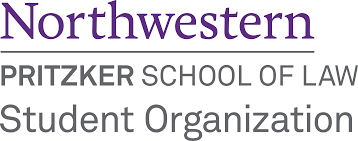2021 Exam Tips From the WLC Board
I try to finish outlining before reading week gets underway and then use the reading period to review my outlines and work on practice exams. I like to take at least one timed practice test per course just to get a sense of how tight time is likely to be on exam day. Time permitting, I recommend scheduling time to go over practice exams with classmates. I would especially prioritize this for classes where 1) the professor does not make model answers available; and/or 2) the professor indicates that even “A” students will only get ⅔ or less of the possible points on the exam. Last, remember to be kind to yourself during the exam period. Make sure you are getting enough sleep—and don’t hesitate to take a break for Netflix (or any other relaxing activity)!
—Ella, Communications Director
Stick to what you know and do what works for you. There are an infinite number of ways to prepare for exams and everyone processes information differently. Sometimes, hearing others’ study strategies can be informative, but try to not let everyone else’s methodology and study plan become a “should” on your to do list as well. You have years of experience figuring out how to study and that success has led you here - no reason to ditch it now just because you are surrounded by others who do it differently. Also, I found it helpful to “parallel play”; that is, study alongside others but not with them, so I could do my work but not feel completely isolated and lonely for two weeks.
—Shayna, Community Engagement Director
Try to take a practice exam for each class if one’s available, either through the professor or the law library’s website. I came into law school never hearing the words “issue spotter” or “IRAC” before, so I was really nervous going into finals. Taking practice exams helped me feel more comfortable with the format of exams and how to apply the knowledge I’d gained all semester and while outlining. Plus past exams might tip you off as to what a professor considers an important concept!
—Emma, Director of Alumnae Relations
Do what works for you and don’t pay attention to what everyone else is doing. Comparison will only cripple you. Focus on you, make sure you’re sleeping enough, eating healthy(ish), and taking the time to recharge - whatever that means for you.
—Marjorie, Director of Symposium
Take lots of breaks! People think they need to be studying 24/7 during exam period, but that’s just not feasible. Your body needs to refuel. Watch an episode of your favorite show. Take some time off after you take an exam before you dive into studying for the next one. And once you take an exam, don’t dwell on it. Put it out of your mind, so you can transition your mind onto new subject matter. And remember, no exam grade—or even the sum of your 1L grades—will determine your career path or how good of a lawyer you will be!
—Luma, President
Two recommendations: (1) Practice writing rule statements for all your classes. Try to do it blind and then check your work against your outline. This helps you learn material better and challenge your memory (without wasting a practice test!) and it gives you a bunch of rule statements to fall back on if you blank! (2) If there is a part of your outline you want to be able to find quickly during the test, like rule statements, put a # in front of your keyword - like #Consideration. That way, when you CTRL+F under time pressure, you don’t spend time scrolling through extraneous information.
—Regan, Community Engagement Director
The best exam studying strategy is the one that works for you! For example, I personally think much better when I can really deep dive and focus on only one class a day while studying. Other students get bored too easily doing this, and would prefer to switch between different classes every few hours. Even though law school exams are so different from anything you’ve done before, you know yourself better than anyone else, so listen to what works for you and don’t get too overwhelmed with anyone else’s study strategy! Lastly, sleep needs to be an absolute priority. Even if you can function on minimal sleep most of the time, exams are exhausting and require a lot of brainpower! If you are starting to feel mentally drained at night, it is usually always better to take a break and go to sleep rather than trying to push through.
—Julia, Vice President
